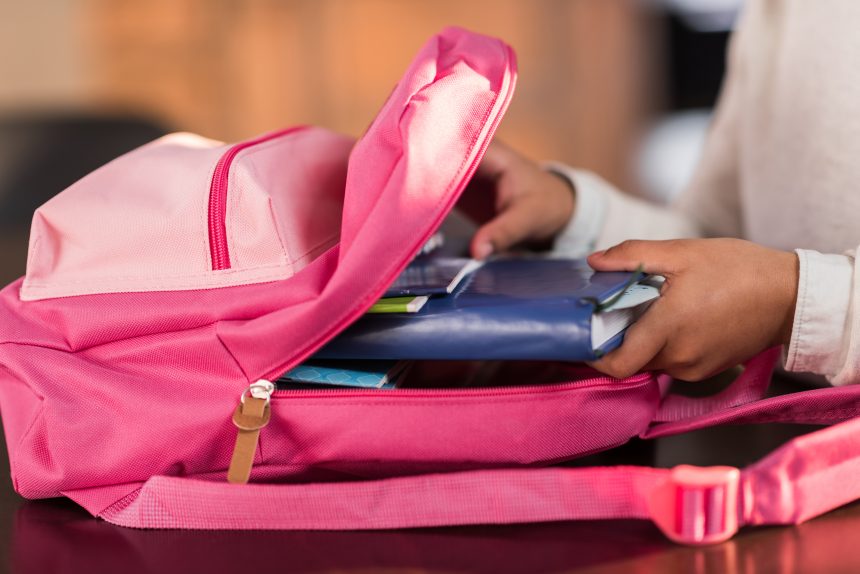Contents:
The start of a new school year is an exciting time, but for many children and young people, returning to school after a long break can be stressful. With the start of the academic year comes a host of new routines, challenges, and anxieties.
Some students are more prone to back-to-school anxiety than others, particularly if they’re moving to a new school or have an exam ridden year ahead.
It’s normal for parents to feel anxious too. You’ll need to support your child in their new environment and adapt to a new schedule.
Here, we’ll provide some useful tips to help you tackle your child’s back-to-school anxiety.
Signs of back-to-school anxiety
But first, how can you tell if your child is suffering from back-to-school anxiety? Whilst young people may express anxiety in different ways, here are some general symptoms to look out for in the weeks leading up to the beginning of term:
- Mood swings
- Changes in behaviour (e.g. becoming withdrawn or hyperactive)
- Loss of interest in activities they usually enjoy
- Changes in sleep patterns (e.g. over-sleeping or having trouble falling asleep)
- Changes in appetite
- Physical symptoms (e.g. stomach aches, headaches, nausea)
- Excessive worrying and seeking of reassurance
- Listing reasons why they can’t or don’t want to return to school

Tackling back-to-school anxiety
If you think your child is suffering from back-to-school anxiety, it can be difficult to know how best to support them. As a parent, there are a number of things you can do to help ease their worries.
1. Talk to your child
You can’t help your child if you don’t fully understand how they’re feeling. Sit down with them and encourage them to share their concerns.
Are they worried about something in particular (e.g. starting a new class, making new friends, or exam pressures) or are they suffering from a more generalised anxiety? Reassure your child that back-to-school anxiety is common, but equally acknowledge their emotions.
Together, talk through different scenarios and come up with ways of dealing with them. For example, if they’re worried about upcoming exams, discuss the steps they can take to ensure that they are prepared and keep on top of their work from the beginning of term. If they’re concerned they won’t make friends, help them come up with conversation starters to get talking.
Encourage them to spot negative thinking patterns and explore ways in which they can deal with them. Are their thoughts realistic or are they catastrophising? Help them to reframe their thoughts. For example, in response to “I’m going to fail my GCSEs”, you could say “You’ve done well in exams before and with hard work, there’s no reason why you shouldn’t succeed”.

2. Model healthy ways of dealing with anxiety
Think carefully about the type of behaviour you’re modelling for your child. If you’re stressing about all of the things that need to be done before the new term begins, then it’s no surprise if your child starts displaying signs of school-related anxiety.
Be aware of the language you use around your child. Although it can be difficult, try to use more positive self-talk.
3. Get in a routine
A couple of weeks before the start of term, try to reinstate school routines. Regular routines often go out of the window during the holidays, so re-establishing them now will ease both your and your child’s transition from ‘summer holiday mode’ to term-time routine.
Encourage your child to head to bed earlier and at the same time each night. Similarly, wake them up at the same time every morning and try to create a more structured meal schedule.
4. Prepare for the start of school
Your child will feel more confident returning to school if they feel prepared.
A few days before the start of term, help them to organise their school uniform, school bag, and pencil case. There’s nothing worse than last-minute rummaging around the house for a calculator or pencils! Or, finding out that their school uniform no longer fits!

If they have summer school work to complete, now’s the time to do so. If they’re going into Year 11 or 13, encouraging them to briefly read over last year’s notes may help them get back into the swing of studying. If you think they would benefit from more structured support then our GCSE and A Level Refresher courses are a great way to get ahead with the new school year.
5. Catch up with friends
Encourage your child to meet up and reconnect with friends before heading back to school. Your child may be so focused on their worries that they forget the positive aspects of school life. Meeting up with friends enables them to make plans and get excited about the term ahead.
Their friends may also be feeling a similar way and meeting up will provide them with an opportunity to talk through any worries they may have with others in the same boat. There’s only so much you, as a parent, can say to alleviate your child’s worries, and you might be surprised how beneficial a chat with their friends can be.
This block is currently empty. Please add some content.
As the new school year approaches, it’s normal for your child to experience some back-to-school anxiety. By recognising the signs of anxiety, engaging in open conversations, modelling healthy coping mechanisms, and gradually re-establishing routines, you lay the foundation for a smoother transition.
If you’re concerned that your child’s back-to-school anxiety is severely impacting their day-to-day life, then let someone know. You can reach out to their school who can provide additional advice and support. You may also want to seek help from your child’s GP.






Comments